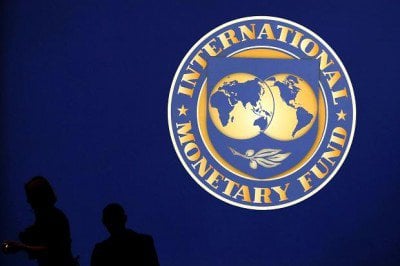The Dangers of Neoliberal Economics. The IMF’s Deadly Economic Medicine

For years, criticism has been mounting against the Neoliberal Economic principles espoused by the International Monetary Fund (IMF), and applied on all countries that stumble economically and seek the IMF’s help.
Many of these unfortunate countries, most of which are poor and/or developing, ended up in dire straits, sometimes worse than they began with. They were all coerced to deregulate their markets and open them to foreign capital and companies, thus losing control of their resources and sources of income. It was akin to inviting the fox into the chicken coop.
No doubt, the IMF’s policies did benefit some countries, but in all cases, the fox was let-in to take up permanent residence.
The main tenets of Neoliberal Economics are the deregulation of markets and opening them up to foreign capital flows, and shrinking the public sector to reduce government budget deficits and hence, the need to borrow.
This all sounds nice and logical, but in reality, is too general and superficial, and cannot be applied to all countries and economies in the same manner or equal doses – Countries are not a “one-fit-all” sock. Economies differ according to their constituents, stages of development and the causes of their poor performance.
After almost forty years of total belief in Neoliberal Economics, a group of IMF research economists realized its inherent flaws and published a Paper in the IMF journal (June 2016) critiquing these policies. Although the Paper concentrated on part of the IMF’s policies, it does reflect a beginning of change in the thinking process, which it is hoped catches on, and spreads to the executive divisions.
[GR Editor’s Note: This is not the first time the IMF has indulged is self-criticism. The ultimate purpose is to give a human face to IMF, without contemplating a major revamping of its policy conditionalities, M.Ch]
The Paper stressed on two “standard” IMF policies: Opening markets to foreign capital flows, and the austerity policies designed to shrink government spending. It questioned the viability of those two policies, and concluded that, more often than not, they have led to negative results, such as a drop in economic output and an increase in social and economic inequalities.
Opening financial markets to foreigners has, in many cases, led to currency volatility and economic crises. Especially, when the incoming foreign capital is speculative and/or short term in nature, regardless if it cloaked as direct investments or loans. It tends to accentuate booms and busts, depending on the phase of the economic cycle the economy is in, at the time of arrival or departure of the foreign capital. The Paper points out that 20% of the countries that the IMF had intervened in since 1980 have been hit with a financial crisis (the most famous is Thailand).
Also, in the absence of a clear government vision, a deep understanding of the concepts involved and capable institutions to control and monitor the opening up of the financial markets, the damage of such policies is likely to be magnified. Despite following the IMF’s policy recommendations, such countries fail to achieve economic growth, and only succeed in increasing social and economic inequality.
As for the policy to shrink the size of governments and reduce expenditures through and austerity program (or privatization), the Paper expressed alarm and a warning against its implementation in a general manner in all economies as a cure-all pill.
The Paper also addresses Public Debt, and concurs that large public debts are detrimental to economic growth, and should be reduced as soon as possible. However, it warns that raising taxes and shrinking expenses could change economic behavior in the market and damage the chances of growth. There is a delicate balance between public debt and the speed of reducing it. It differs from one country to another, and hence, requires custom treatment in each case.
The Paper concluded that austerity can stunt economic growth and increase inequality, which forces governments to increase welfare spending to maintain peace in society. But increased welfare spending has to be financed; most likely by new taxes (and rates), which further hurts growth and increases welfare spending, and so on – a hopeless viscous cycle.
To mitigate the negative effects of austerity policies, the Paper recommends implementing policies that redistribute income and wealth, minimize the impact of austerity on lower income classes and increase spending on education and re-training to improve job finding opportunities and thus reduce inequalities. However, such corrective policies are, by their nature, medium and longer term, and time and good planning are needed. Sudden cost cutting or tax and rate increases, may worsen a precarious condition.
The above referred to Paper is an admission from, so to speak, “The horse’s mouth”, i.e. the Economic Research Department at the IMF. We can only hope that its findings are translated into new policies for developing countries seeking economic assistance. But, above all, we hope that the Paper’s message is understood by the governments of the second and third world countries, contributes to a change in their current conventional wisdom and encourages them to develop new strategies, suitable for their unique cases.
Marwan Salamah, is a Kuwaiti economic consultant and publishes articles on his blog: marsalpost.com

